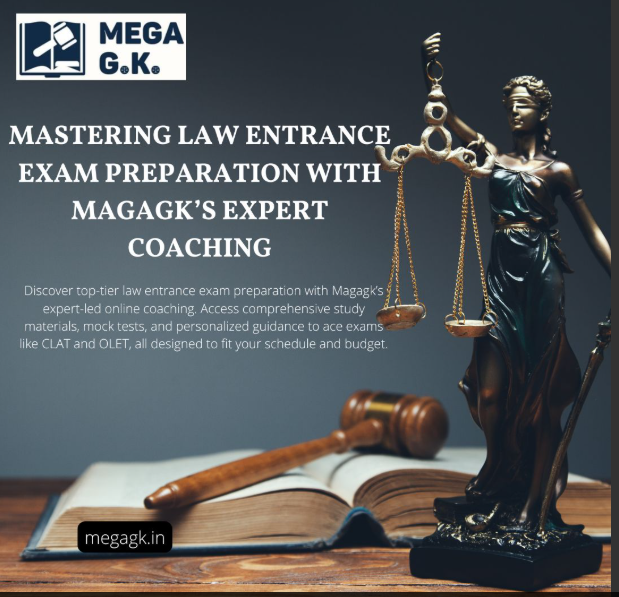
Are you aiming to secure a top rank in CLAT 2026? Whether you’re a determined dropper giving it another shot or a first-time aspirant just starting your journey towards your dream NLU, your success largely depends on how well you master the English Language.
English in CLAT is far more than vocabulary drills or grammar rules. This section is holistically a test of your ability to read critically, interpret complex arguments, and understand and analyse content under time pressure. Mastering this section can be the difference between clearing the cut-off comfortably and missing out on your dream college.
If you’ve been wondering how to approach English effectively or how to push your score higher, this article is tailored just for you. We’ll break down proven strategies designed to build your comprehension skills, expand your contextual vocabulary, and sharpen your accuracy, all while managing your time smartly.
Understanding the CLAT 2026 English Section: Format, Focus, and Challenges
The CLAT English paper typically comprises 25 to 30 questions based on 4 to 5 passages which is nearly 20% of the total questions. Each passage is approximately 350 to 450 words long and drawn from diverse genres. Unlike questions that test rote knowledge, the English section emphasizes inferential skills, vocabulary comprehension in context, and the ability to engage critically with the text. Therefore, Proficiency in the English Language section can significantly enhance one’s overall score and rank in the CLAT examination, given its substantial weightage.
At its core, much of the English section revolves around Reading Comprehension. This involves more than just reading; it tests your ability to understand, analyze, and interpret given passages. The passages chosen for CLAT are diverse, often featuring editorial content that discusses current affairs, social issues, or ethical dilemmas, as well as biographical sketches and opinionated essays. It is important to familiarize yourself with such genres to better anticipate the style and language used in the exam.
Within this broad category, you’ll find several specific question formats:
- Direct/Factual Questions: These are straightforward. You’ll need to pinpoint specific pieces of information that are explicitly stated in the passage. Think of them as open-book questions where the answer is directly on the page.
- Main Idea/Primary Purpose Questions: Here, the challenge is to grasp the essence of the passage. You’ll be asked to identify the central theme, the author’s primary objective, or the overarching message the text conveys.
- Inference-Based Questions: These require a bit more thought. The answers aren’t directly stated; instead, you’ll need to draw logical conclusions or infer meanings that are implied by the text. It’s about reading between the lines.
- Tone and Style of the Passage Questions: These questions delve into the author’s approach. You might be asked to identify the author’s tone (e.g., critical, neutral, sarcastic, humorous) or describe the overall writing style employed in the passage.
- Vocabulary in Context Questions: Instead of rote memorization, these questions test your ability to understand the meaning of specific words or phrases based on how they are used within the passage. Context is key here.
- Suitable title: Based on the context and tone of the passage, you may be asked to deduce the most suitable title for the passage.
Grammar and Usage: Polishing Your Language Skills
Beyond comprehension, the CLAT English section rigorously tests your command of grammar and sentence structure. You’ll face questions designed to identify and correct linguistic errors:
- Sentence Correction: In these questions, you’ll be given a sentence with a grammatical error and tasked with choosing the option that corrects it, ensuring proper grammar, syntax, and word choice.
- Error Spotting: Similar to sentence correction, but often presented differently, you’ll need to pinpoint the specific grammatical or structural error within a given sentence or phrase.
- Fill in the Blanks/Cloze Test: These exercises require you to complete sentences or passages by filling in missing words. Success here depends on both your grammatical knowledge and your understanding of context.
Critical Reasoning: Logic and Argumentation
Finally, the English section also incorporates elements of Critical Reasoning. This segment moves beyond mere language mechanics and assesses your ability to think logically and evaluate arguments:
- Critical Reasoning (CR) Based Questions: These questions will present you with arguments or assumptions embedded within the passage. You’ll then need to analyze them, answer questions related to their logical validity, or consider how the ideas might apply in different scenarios.
By dedicating time to each of these areas, you can strategically prepare for the CLAT English Language section and significantly enhance your overall exam performance.
Strategies to Improve Score in English Section
- Daily Reading Habit:
It is strongly recommended to integrate editorial reading into your daily routine. Newspapers like The Hindu, The Indian Express, and LiveLaw, Mint, The daily Guardian, etc. are some of the reliable resources that you can refer to. You may also read websites like Aeon Essays to enhance your vocabulary and comprehension skills. Regularly reading the newspapers not just helps you with the English and Critical Reasoning section but also boosts your score in General Knowledge and Legal Reasoning Sections. However, the focus must be on active engagement not just passive reading. This means identifying the passage’s thesis, noting the author’s viewpoint, and recognizing stylistic elements such as sarcasm, persuasion, or neutrality, all under timed conditions. - Active Reading Strategies:
Rather than trying to memorize content, aspirants should practice skimming for gist and scanning for details. Summarizing editorials in your own words, observing key arguments, and predicting possible questions sharpen analytical abilities. Practice reading across varied topics to develop adaptability. - Differentiate Between Main Point and Supporting Ideas:
Begin by identifying the main point or central idea of each passage, as it helps you better comprehend the context. Remember, the test assesses comprehension of the given text, not your pre-existing knowledge. - Practical Usage:
Vocabulary questions can often be answered correctly if you understand the passage context well.
- If a word’s meaning isn’t immediately clear, examine the two lines preceding and following it. The surrounding context often provides strong clues to its meaning. This further underscore why reading comprehension and vocabulary development are interlinked.
- Identify new words in newspaper editorials and make note of them along with their meaning and usage in sentences. Revise the same after periodic intervals to ensure retention.
- Brush Up on Grammar: Grammar should not be looked as a separate subject but as a tool to enhance reading skills. Studying foundational texts such as Wren & Martin can be useful, but practice should focus on recognizing grammatical structures in real passages rather than isolated drills.
- Managing Time and Accuracy: The English section typically contains 25 to 30 questions, which must be solved in approximately 30 minutes. Therefore, managing this limited time effectively is vital.
- Skim through all the passages at the start of the section to gauge difficulty levels and decide the order of attempt. You must start with passages or questions that appear easier or more familiar to build confidence and secure quick marks.
- Spending too long on any single question, especially those involving tone or subtle inference, can derail your entire section. The mantra is to keep moving and come back only if time permits.
- Mock Tests and Sectionals:
Mock tests are not just practice sessions, they are diagnostic tools that provide insights into your preparation level. Attempt at least one full length mock every 2 days and analyse the same immediately after calculating the scores. Make a note of frequently repeated errors and practice your weak areas to improve performance.
Common Mistakes and How to Avoid Them
Despite preparation, many aspirants lose valuable marks due to avoidable errors. Here are some commonly occurring mistakes to watch out for:
- Rushing through passages without grasping the author’s purpose or tone. This leads to incorrect inference-based answers.
- Resist the urge to jump directly to questions. A thorough understanding of the passage beforehand will significantly increase your accuracy and efficiency. Maintain absolute focus throughout, as even minor words can alter a question’s meaning; read every question with precision.
- While confidence is beneficial, never overlook the importance of reviewing all available options, even if you feel certain about an answer.
- Ignoring contextual clues in vocabulary questions and guessing meanings without passage support.
- Making assumptions beyond the passage. Do not introduce external knowledge or assumptions when solving the questions.
- Over-analyzing questions, especially in reading comprehension, can cause errors; stay calm and rely on your initial judgment.
Conscious awareness and active reading habits can mitigate these pitfalls effectively.
Limited Sheets are Available to Join Free 7 Days Demo Classes
Join Now
Conclusion
The English section is more than just a test of vocabulary or grammar. It checks how well you can read, understand, and analyses information under time pressure. With a strong weightage in the exam, performing well in this section can make a big difference to your overall score.
By diligently integrating active reading into your routine, meticulously dissecting diverse texts, and sharpening your command of grammar and critical reasoning, you’ll build an unshakeable foundation. Remember to approach your preparation with discipline, utilize mock tests as invaluable diagnostic tool, and consciously avoid common pitfalls like overthinking or external assumptions. Ultimately, consistent effort, strategic study, and rigorous engagement with diverse texts will get you closer to your dream NLU.
